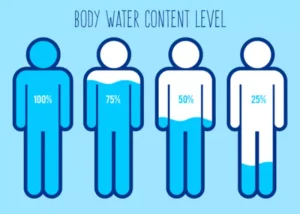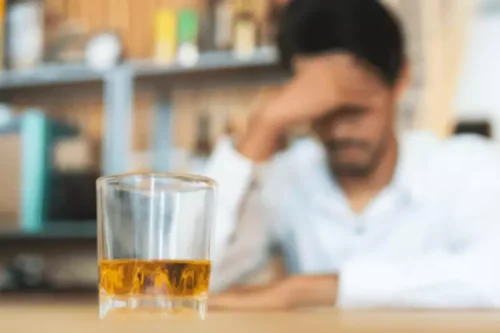24 Mar. 21
Quitting Alcohol Timeline: What to Expect in Weeks 1-3

Too much alcohol affects your speech, muscle coordination and vital centers of your brain. A heavy drinking binge may even cause a life-threatening coma or death. This is of particular concern when you’re taking certain medications that also depress the brain’s function. A doctor or other treatment professional may evaluate for the above factors prior to making a recommendation for the level of detox care and detox timeline needed to keep a person safe and comfortable. Common medications include benzodiazepines to help treat symptoms like anxiety, insomnia, and seizures.

Causes of alcohol withdrawal delirium
Whereas some experienced mild symptoms in the early days, others reported severe, sometimes frightening ones. Most of those who experience severe alcohol withdrawal symptoms do so because they’re going through their detoxification period “on their own” without the benefit of medical help. That could be because they didn’t have normal sleep patterns to begin with. Daily drinking can cause disruptions in sleep as well, so quitting suddenly can be a shock to the system. After six days of sobriety, these people report vastly different experiences with sleep and other alcohol withdrawal symptoms. Symptoms of alcohol withdrawal can occur anywhere from six hours to three days after a person’s last drink, and more persistent symptoms tend to resolve themselves within weeks.

Health Challenges
- “Throat still hurts a bit from the vomiting, still sweating and clammy, can’t sleep, have a bit of heartburn/indigestion. Visiting the toilet is becoming less frequent. Even managed to get a small meal in.”
- Some are finally able to get some sleep at day five, whereas others still have problems sleeping.
- To keep health risks from alcohol to a low level, the UK Chief Medical Officers (CMOs) advise it is safest not to drink more than 14 units a week on a regular basis.
- If you have severe vomiting, seizures or delirium tremens, the safest place for you to be treated is in a hospital.
“I feel totally horrible. Shakes, sweats, and insomnia. I am hearing noises that don’t exist. Anyways, I talked to my doctor, and she prescribed a small dose of Valium to help me pull through. It seems to be helping. I hope tomorrow I won’t need it.” By the end of your first month of sobriety, the benefits of better sleep, improved hydration, spending less and decreased calorie intake will be growing. You will likely have saved over $800 and avoided about 12,000 calories or more, allowing you to lose at least four pounds. By the end of this first month, your recovery will be well underway, and your struggle with alcohol will begin to become more of a distant memory than a recent struggle. Keep a list of emergency phone numbers on hand that includes contact info for your doctor, the police, a nearby hospital, and someone you trust. If you decide to get treatment, your doctor can recommend the type of care that you need.
Stage 1: 6 to 12 hours after last drink
- After 12 days of abstinence from alcohol, most people who quit have very few withdrawal symptoms.
- Take our free, 5-minute alcohol misuse self-assessment below if you think you or someone you love might be struggling with an alcohol use disorder (AUD).
- Your doctor will evaluate your usual diet and check for vitamin deficiencies because poor nutrition is common when someone is dependent on alcohol.
- “It’s been really tough, constant inner voice trying to persuade me just the one-night drinking again would be OK. I have just had to surf the urges, keep busy, and use all my strength.”
- The Recovery Village Atlanta offers comprehensive addiction treatment for drug and alcohol addictions and co-occurring mental health conditions.
Your health and wellness is unique to you, and the products and services we review may not be right for your circumstances. We do not offer individual medical advice, diagnosis or treatment plans. A person should seek help for alcohol use disorder simply if it becomes a problem in their life and they feel alcohol withdrawal they need help, says Avery. It can be helpful to make a plan ahead of time for how to handle a relapse.


Most people with mild to moderate alcohol withdrawal don’t need treatment in a https://ecosoberhouse.com/ hospital. But severe or complicated alcohol withdrawal can result in lengthy hospital stays and even time in the intensive care unit (ICU). This article discusses alcohol withdrawal, its symptoms, and potential complications.


